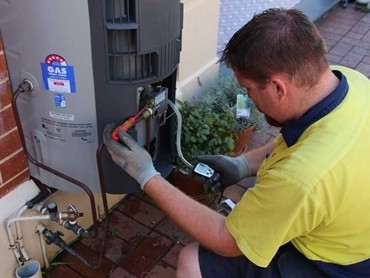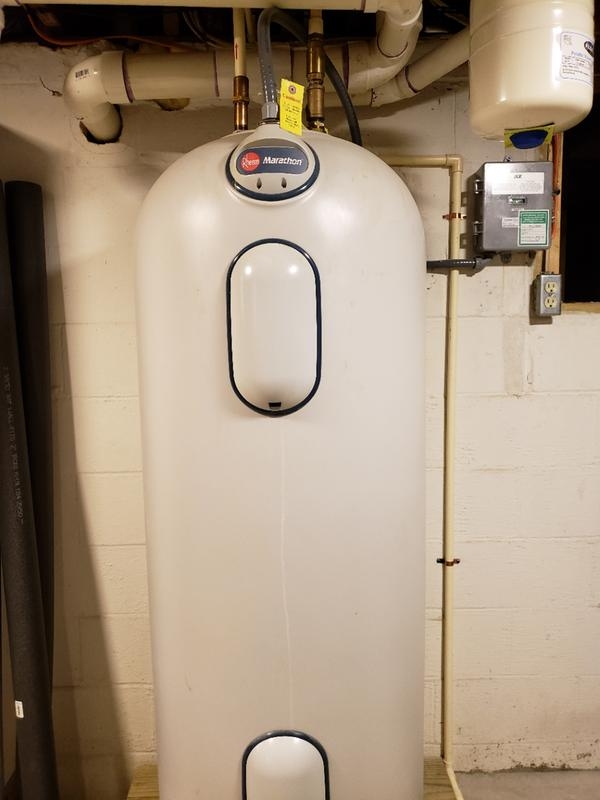Why does my rheem water heater smell like gas?
Are you noticing a strong gas smell coming from your Rheem water heater? This can be a concerning issue for homeowners, as it could indicate a potential gas leak or other problems with the appliance.
Rheem is a popular brand of water heaters, known for their reliability and efficiency. However, even the best appliances can experience issues over time. If you’re noticing a gas smell coming from your Rheem water heater, it’s important to address the problem promptly to ensure the safety of your home and family.
There are several potential causes for a gas smell coming from your Rheem water heater, ranging from minor issues to more serious concerns. In this article, we’ll explore some of the most common reasons why your Rheem water heater may be smelling like gas, and what steps you can take to fix the problem.
What are Rheem Water Heaters?
Rheem water heaters are a popular brand of water heaters that millions of households across America rely on for quality and reliable hot water. With over 100 years of experience in the industry, Rheem has been at the forefront of developing innovative and efficient water heating solutions for residential and commercial use.

Rheem water heaters come in a vast range of types and models, including gas and electric heaters, storage tanks, tankless, and solar-powered heaters. These water heaters have become a known household name, thanks to their efficiency and long-lasting performance.
The decision to choose a Rheem water heater ultimately comes down to a homeowner’s specific hot water demands, usage patterns, and efficiency preferences. The company has developed several types of water heaters to suit all kinds of user needs and budget considerations.
One key feature that makes Rheem water heaters a popular option is their durability. They are built with high-quality materials and have passed rigorous testing to ensure they stand up to the test of time. Rheem also invests a significant amount of research and development into ensuring that their water heaters are energy-efficient, eco-friendly, and cost-effective.
To ensure your Rheem water heater lasts for a long time, it’s essential to carry out regular maintenance such as flushing the tank, replacing the anode rod, and inspecting the gas valve, gas lines, pilot light and heating element to prevent any potential issues. In case of any malfunction, it is recommended to contact a licensed professional to assess and fix the problem.
Common Causes of Gas Smells from Your Rheem Water Heater
As a homeowner, noticing a gas smell coming from your Rheem water heater can be concerning. A gas smell is often indicative of a gas leak, which can be dangerous and even deadly if left unresolved. However, there are several reasons why your Rheem water heater may be emitting a gas smell, some of which may not be as serious as others.
One common reason for a gas smell from your water heater is a malfunctioning gas valve. The gas valve controls the flow of gas from the gas supply line to the pilot light and burners, so if it’s not working correctly, gas may be leaking out of the valve. This can be a serious issue and should be addressed by a licensed professional as soon as possible.
Another cause of a gas smell from your Rheem water heater could be a buildup of hydrogen sulfide gas in your water tank. This gas is produced by the breakdown of naturally occurring sulfates in water and can give off a rotten egg smell. This issue can be easily resolved by flushing your water tank and adding a small amount of hydrogen peroxide to the water to eliminate the hydrogen sulfide gas.
A gas smell from your water heater may also be caused by a leak in the gas line or gas piping. If there is a leak in your gas line, you may be able to detect it by using a solution of soap and water to check for air bubbles around the gas line connections. If you do find a gas leak, it’s crucial to shut off the gas supply immediately and contact a licensed professional to repair the leak.
In some cases, a gas smell from your water heater may not actually be a gas leak at all. Instead, it could be due to the presence of other substances in the water, such as bacteria or other contaminants. Water softeners, for example, can sometimes create a sulfur-like smell in water. This issue can be resolved by installing a water purification system to eliminate any contaminants in your water.
Overall, if you notice a gas smell coming from your Rheem water heater, it’s important to identify the source of the problem and address it promptly. Whether it’s a malfunctioning gas valve, a gas leak, or an issue with your water quality, working with a licensed professional can help ensure the safety and efficiency of your water heating system.
Diagnosis and Troubleshooting Your Rheem Water Heater for Gas Odors
When it comes to your Rheem water heater, a gas odor can be both concerning and unpleasant. Luckily, there are several potential causes for a gas smell in your water heater, and many of them are easily fixed with a little DIY troubleshooting.
One common culprit for a gas smell in your water heater is a malfunctioning gas valve. This valve is responsible for regulating the flow of gas from the supply line to the burners and pilot light. If the valve isn’t functioning correctly, gas can leak out and cause a strong odor. To diagnose this issue, check your gas valve for any signs of a leak or malfunction, such as worn threads. If you suspect a problem with your gas valve, it’s best to call in a licensed professional for repairs.
Another possible cause for a gas smell in your water heater is the buildup of hydrogen sulfide gas in the tank. This gas is produced naturally by the breakdown of sulfates in water and can smell like rotten eggs. To troubleshoot this issue, you can try flushing your water tank and adding a small amount of hydrogen peroxide to the water. This should eliminate the hydrogen sulfide gas and solve the odor problem.
If the above steps don’t solve the issue, it’s possible that there could be a gas leak in the lines or piping. To check for a leak, mix up a solution of soap and water and apply it to the gas line connections. If you see any bubbles forming, this indicates a gas leak. Shut off your gas supply immediately and contact a licensed professional for repairs.
Lastly, there could be other contaminants in your water causing a gas-like odor. Bacteria or other impurities can sometimes cause an unpleasant smell. If this is the case, it may be time to install a water purification system to eliminate any contaminants in your water.
How to Prevent Gas Odors in Your Rheem Water Heater?
In addition to troubleshooting and resolving existing gas odors, there are several preventive measures you can take to ensure that your Rheem water heater runs smoothly and without any unpleasant smells. Here are a few tips for preventing gas odors from occurring in the first place:

• Periodically inspect your water heater and gas line for any signs of leaks or corrosion.
• Make sure your gas valve is functioning properly and that there are no worn or damaged threads.
• Install a water purification system to eliminate any contaminants in your water.
• Have your water heater serviced by a licensed professional every few years.
Meet Lila Robinson, an expert in the world of plumbing with a talent for delivering valuable insights and captivating articles on an array of plumbing topics. With years of experience handling complicated plumbing issues, Lila has become a go-to resource for homeowners and businesses alike.
Packing vast knowledge in plumbing tools and science, Lila creates a sense of community on her blog and social media accounts, engaging with readers from all walks of life. Her writing style is authentic, unique, and engaging, and she has an exceptional ability to break complex concepts into understandable ideas.
If you have encountered a plumbing issue, chances are Lila Robinson has conquered it. Her articles uncover the underlying problems behind some of the most unexpected plumbing problems, from tankless water heater error codes to drain snakes in vents.
Whether you’re a beginner or an experienced plumber, Lila Robinson’s blog has something for you. Follow her social media accounts to keep up-to-date with the latest posts and join the conversation.